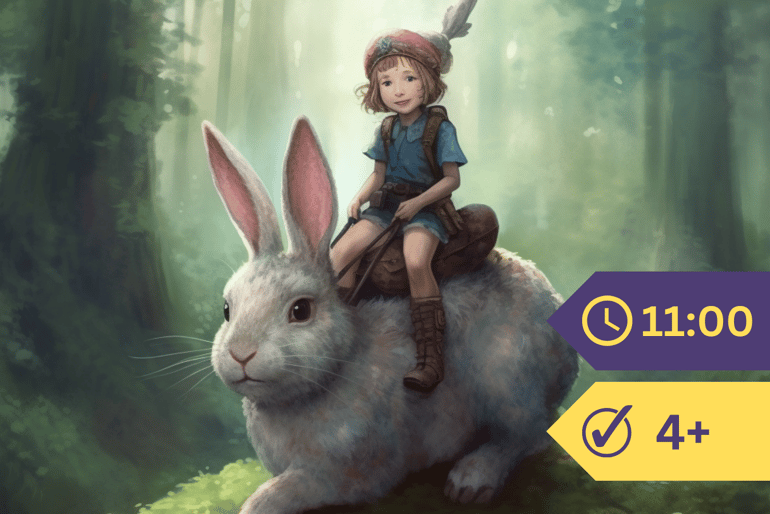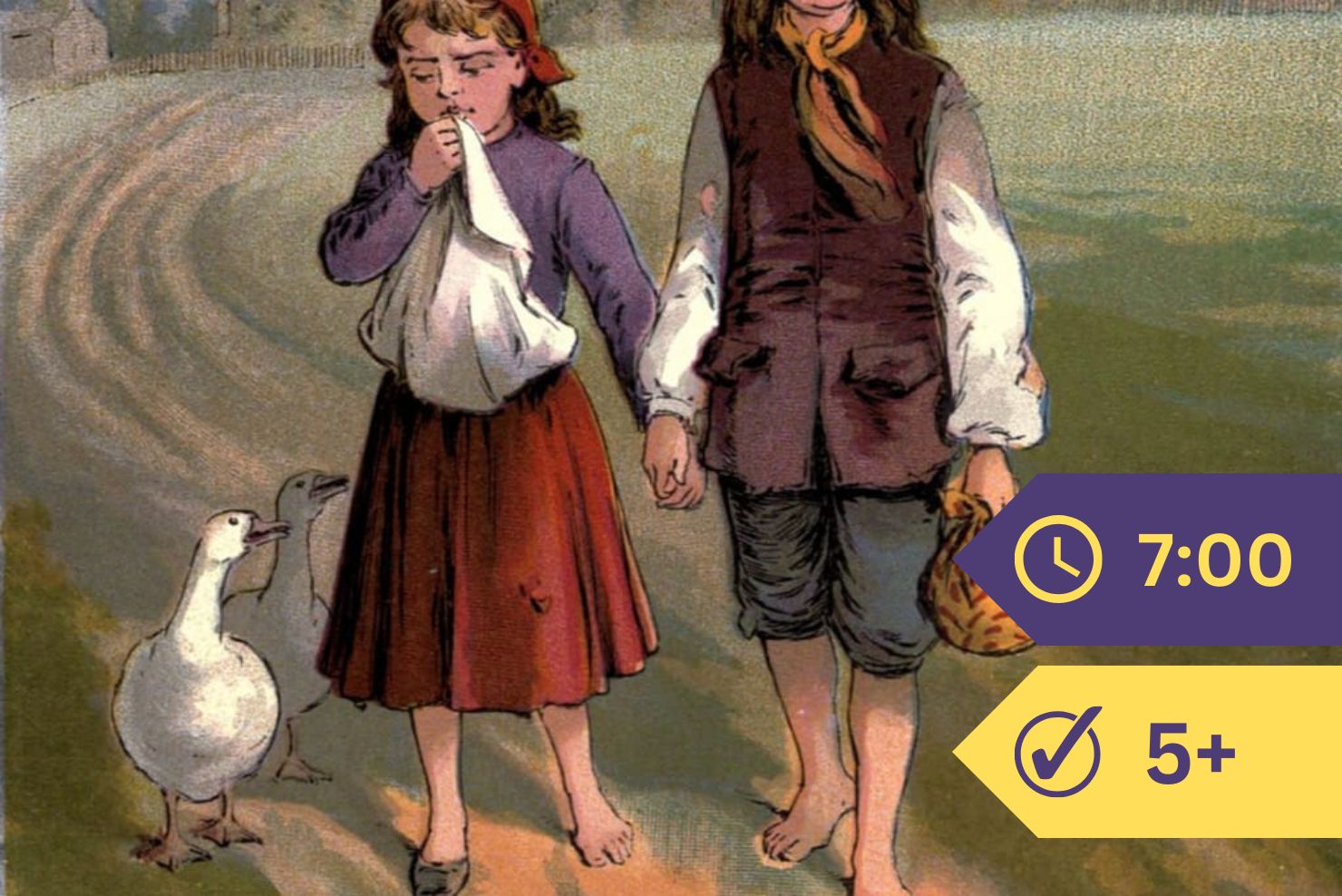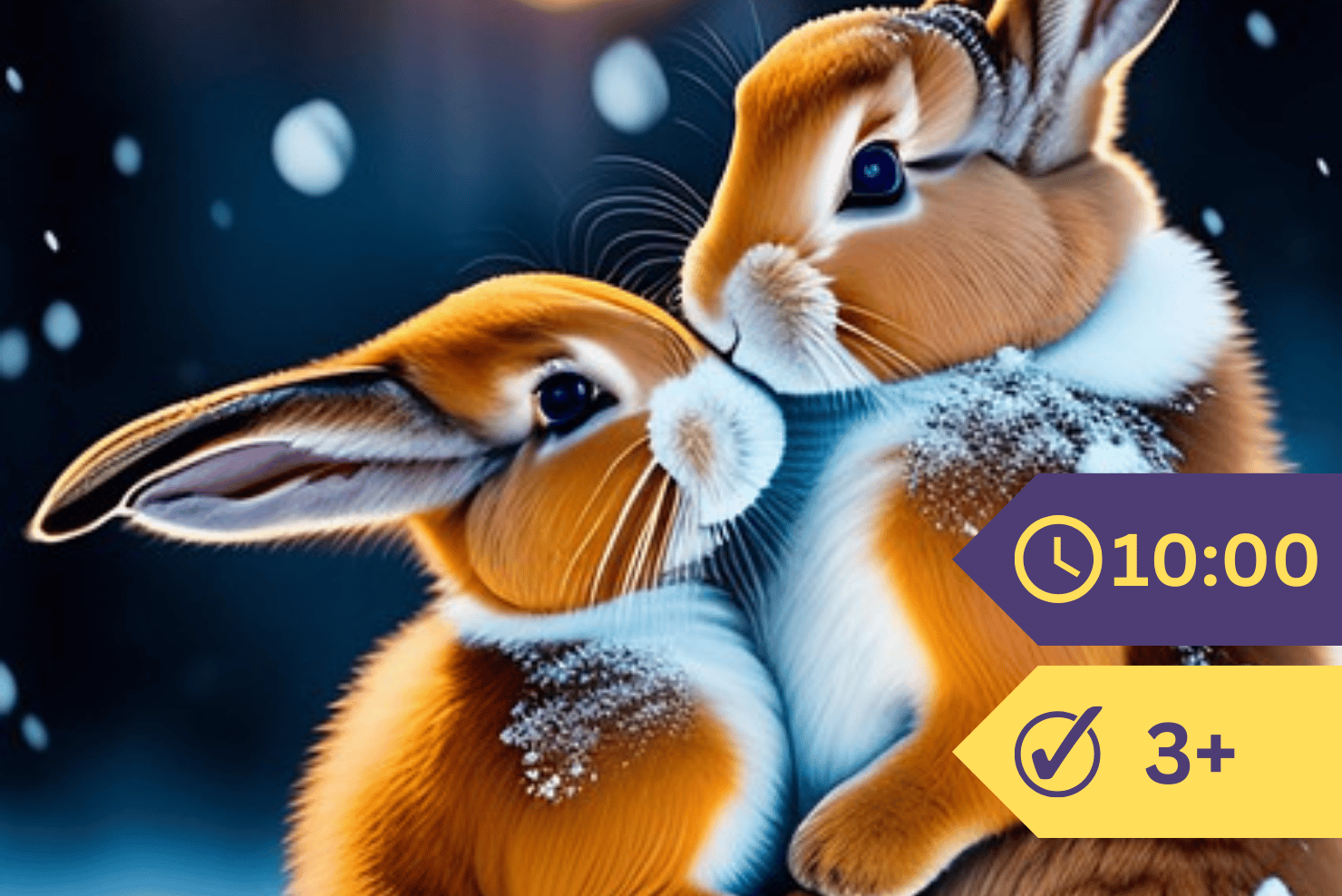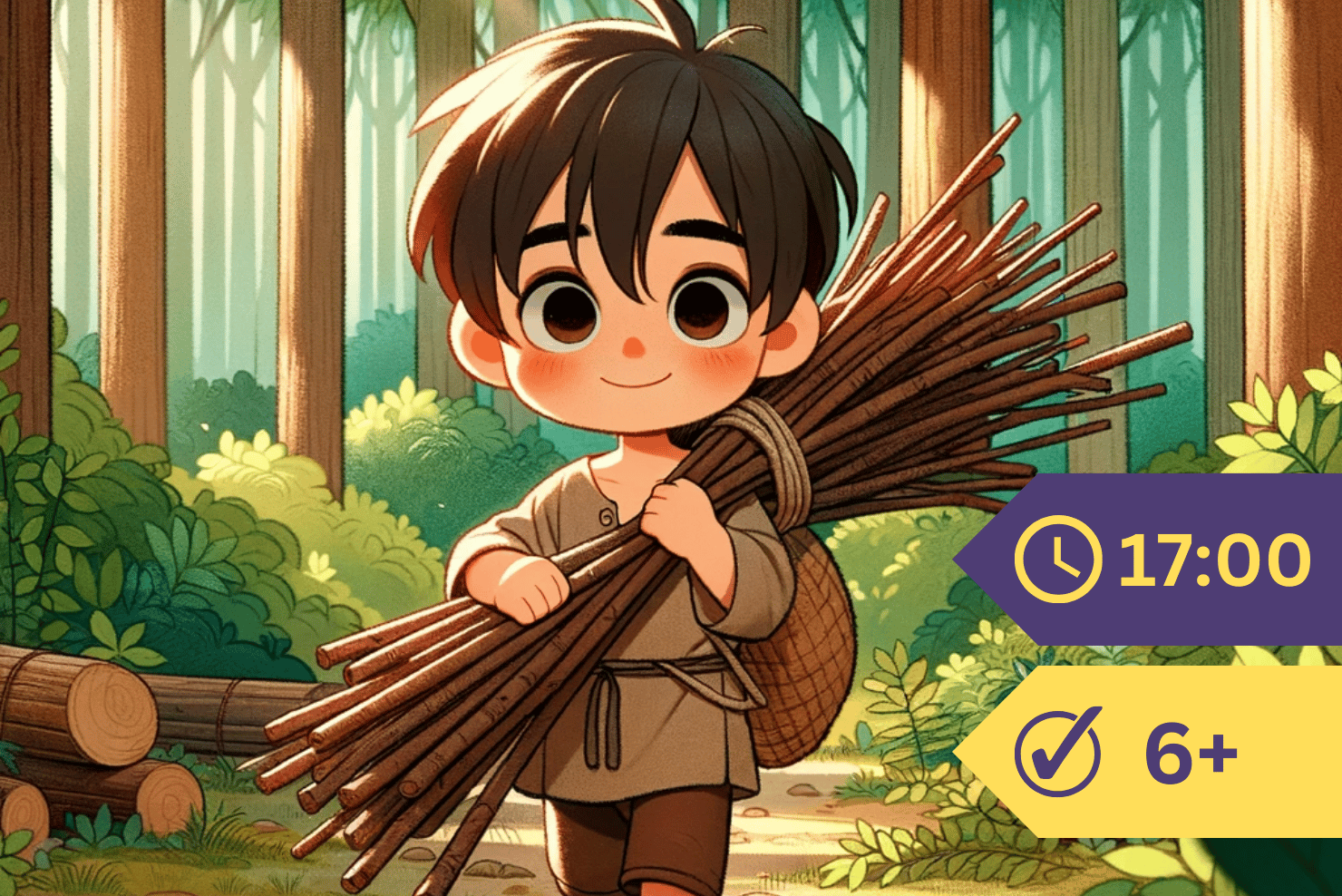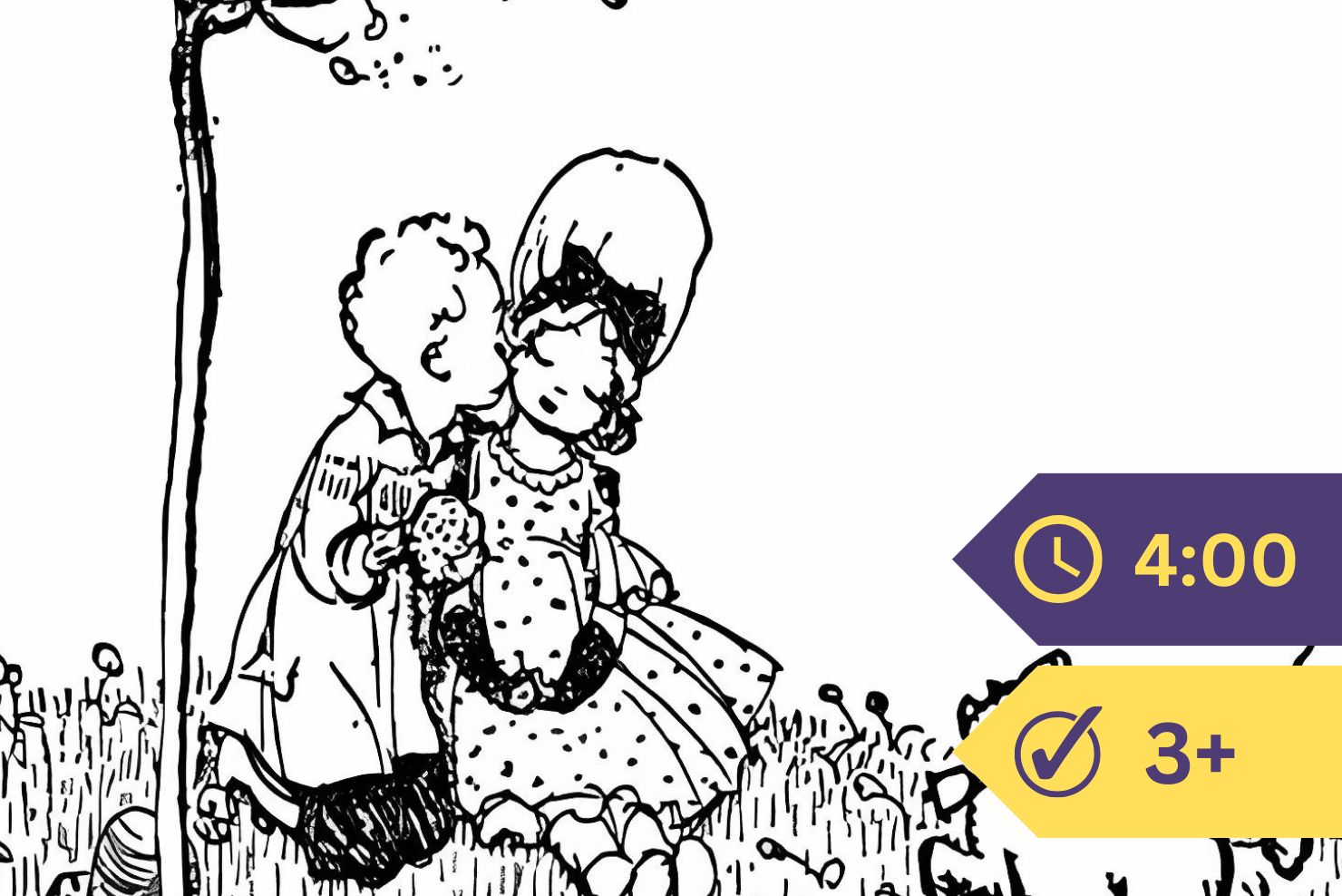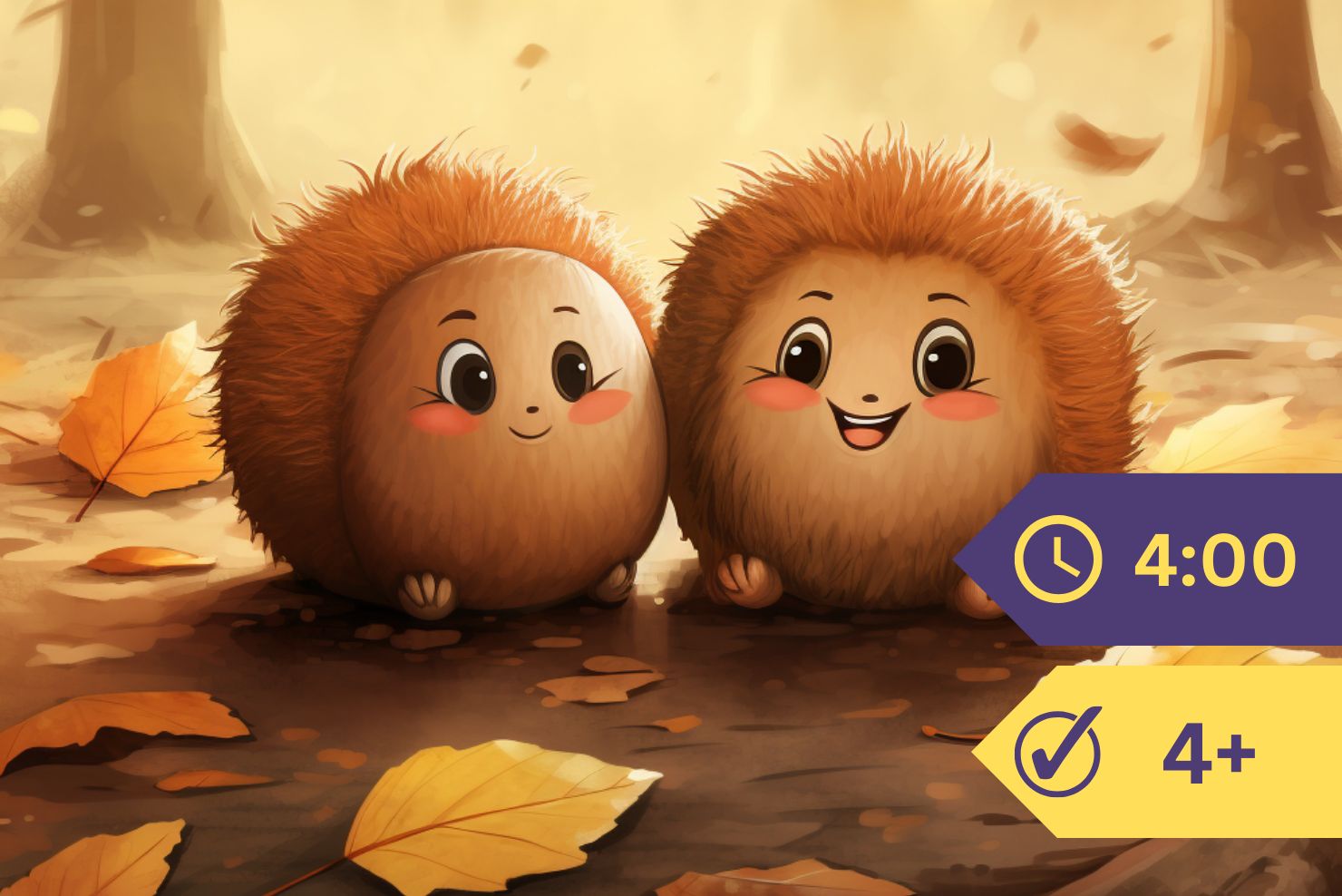“Now do be careful to-day, please, Uncle Wiggily,” begged Nurse Jane Fuzzy Wuzzy, the muskrat lady housekeeper of the bunny rabbit gentleman, as he hopped down off the steps of his hollow stump bungalow one morning.
“Careful? Why, I’m always careful,” answered the bunny, as he twinkled one side of his pink nose and looked to make sure that his red, white and blue striped rheumatism crutch was not painted green. “Don’t you think so, Nurse Jane?” asked Mr. Longears.
“Indeed I do not,” Miss Fuzzy Wuzzy answered. “You get so excited, looking for adventures, that you don’t care whether you are chased by the Pipsisewah or Skeezicks.”
“But I always get away from them; don’t I?” asked Uncle Wiggily. “And the Woozie Wolf, the Fuzzy Fox and even the Skillery Scallery Alligator. I always get away, Nurse Jane.”
“It is hard work for you, sometimes,” said the muskrat lady. “I do wish you would be more careful, Wiggy. Besides, these new adventures of yours—helping real girls and boys out of their troubles—are dangerous. Of course, I love children, and I know you do, also. But some day you’ll be caught by one of these bad boys or girls.”
“There aren’t any bad girls,” laughed Uncle Wiggily. “They are just a bit funny; that’s all. As for bad boys; well, I hope to see them all turn good. And, anyhow, the children love me so much I don’t believe they’ll harm me.”
“Well, you’d better be careful just the same,” Nurse Jane said. Then she went in to dust the dishes and sweep the furniture, and Uncle Wiggily hopped over the fields and through the woods, looking for an adventure.
The bunny gentleman had not gone far from his hollow stump bungalow before he saw a crowd of boys on their way to school. One of the boys had a tin can in his hand, and another carried a piece of rope.
“Oh, maybe those boys are going camping,” thought Uncle Wiggily, “and they’re going to build a campfire and cook their carrot soup, or whatever they eat, in the tin can over the fire. I’ll hide in the bushes and watch them. And I can hear what they say.”
By means of a gift which a good fairy gave him, Uncle Wiggily, for a time, was able to hear and understand the talk of boys and girls, though he could not, himself, speak their language. He wanted to hear what these boys would say, so the bunny gentleman hid in the bushes.
The boys came along, laughing, shouting and trying to sing, but that last they did not do as well as girls would have done. Somehow or other, girls are better singers than boys.
Well, anyhow, the boys came nearer to where Uncle Wiggily was hiding in the bushes, and, all of a sudden, one of the lads gave a whoop like a wild Indian, and cried:
“There’s a dog! Let’s get him!”
“There, now!” thought Uncle Wiggily to himself. “I knew boys were good. They want to take that dog with them to camp and give him some of the soup they are going to boil in the tin can. I hope they don’t give it to him too hot, though, and burn his tongue.”
Uncle Wiggily peeked over the top of the bush, and saw one of the boys chasing the dog. It was a little dog; rather thin, so you could almost count his ribs, and he did not seem to have had much to eat of late. And as soon as the dog saw the boy running after him, that dog began to run also.
“Why, that’s strange,” said Uncle Wiggily. “Why does the dog run away from that good boy? If I were only nearer I’d tell the dog that the boy is going to be kind to him and give him tomato-can camp-soup.”
“Oh, let the dog go!” called a red-haired boy to the one who was running along with the tin can in his hand.
“No, I’m going to catch him and tie this tin can on his tail,” the first boy answered. “You ought to see how fast he’ll run when he has this tin can on his tail!”
“Dear me!” thought Uncle Wiggily, hardly able to believe what he heard. “Tie a tin can on a dog’s tail! And I thought that boy was going to be kind! Oh, oh, what a mistake I made!”
Most of the boys turned off on another path and went to school, but the one with the tin can chased after the dog, and another boy, who seemed very nice and quiet, stayed near the bush, behind which Uncle Wiggily was hidden. Finally the boy with the tin can caught the poor, thin, yelping dog, and carried him back to the bush.
“Where’s that piece of rope?” asked the bad boy, holding the yelping, squirming little dog under one arm, while in the other hand he carried the empty tin can.
“What are you going to do with the rope?” asked the quiet boy. He held his hands behind his back.
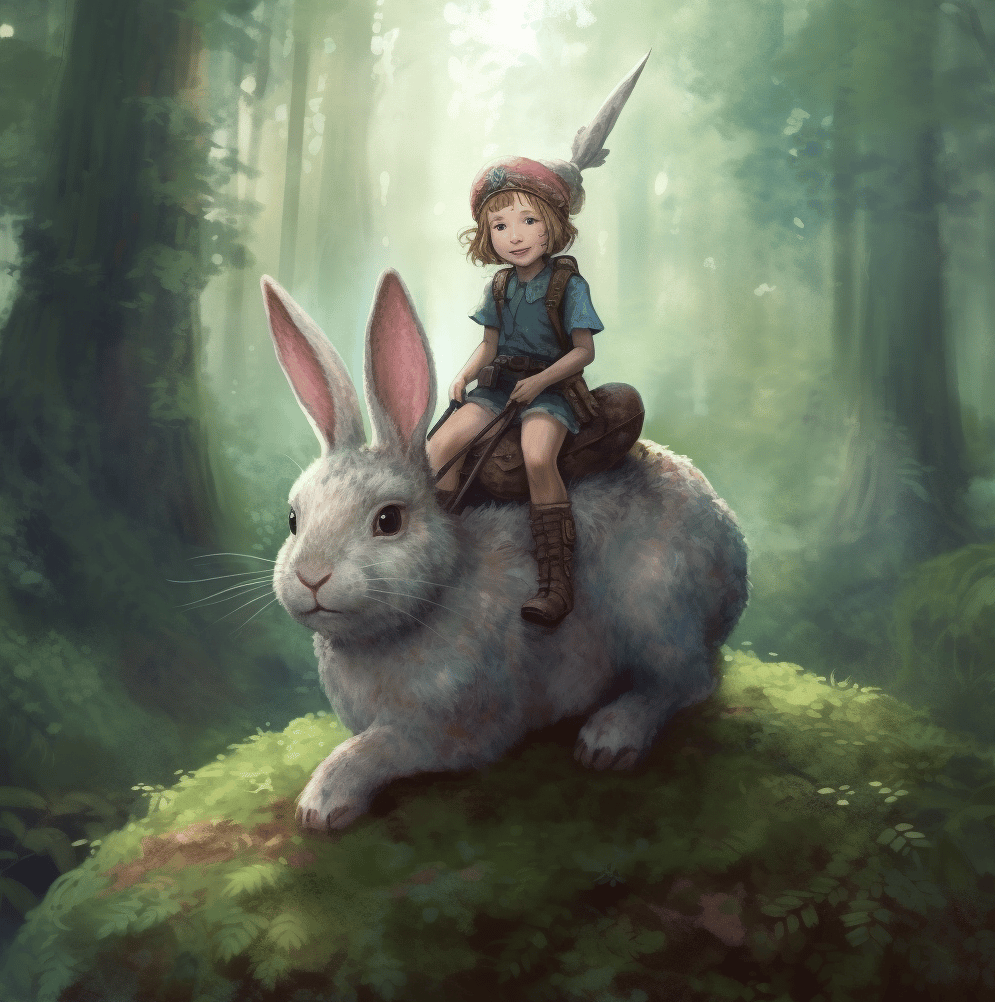
“I’m going to use the rope to tie this tin can on the dog’s tail,” answered the bad boy. “That’s what I am!”
“Then I won’t give it to you,” spoke the quiet lad. “I’m not going to let you tie any tin can to a dog’s tail if I can help it! There! You can’t have the rope!”
With a sudden motion he threw, away over in the weeds, the rope, which he had picked up after another lad had dropped it to go to school.
“Oh, ho! So that’s what you’re going to do, is it?” cried the bad boy. “I’ll fix you for that!”
He dropped his tin can; but still holding the poor dog under his arm, the bad boy rushed at the quiet chap.
“I’ll make you get that rope and help me tie the tin can on this dog’s tail!” cried the bad boy.
“I think it is about time for me to do something,” said Uncle Wiggily to himself. The bunny gentleman, hidden behind the bush, had heard all that was said.
All of a sudden, just as the bad boy was going to hit the quiet lad, for not helping to tie the tin can on the dog’s tail, Uncle Wiggily turned, and, in the soft sand and dirt, began to dig very fast with his paws.
Now a rabbit gentleman is one of the best diggers in the world. With his paws he can make himself a burrow, or underground house, almost before you can eat a lollypop. And Uncle Wiggily, pawing in the dirt, made a regular shower of sand, gravel and little stones fly right in the face of the bad boy.
By looking over his shoulder Uncle Wiggily could see which way to dig so that the sand would go in the eyes of the bad boy, but not in the face of the one who was kind to animals.
Whiff! Whiff! Whiff! the sand, gravel and little stones shot over the top of the bushes, and spattered all over the bad boy.
“Say! Who’s doing that?” cried the unkind chap, trying to hold his arm in front of his face to keep the sand out of his eyes. “If you fellows don’t stop that——”
But he couldn’t say any more, for a lot of sand went flying into his mouth. He dropped the poor, thin dog, who ran away and hid himself in a hollow tree, and then the bad boy had to use both hands to wipe out the gravel that rattled down inside his shirt, and so he couldn’t hit the kind boy.
“Who’s scattering that gravel?” cried the bad boy, scowling.
“I don’t see anyone,” said the other, smiling.
But there was Uncle Wiggily, behind the bush, scattering the gravel with his paws in a regular shower.
“I wish Nurse Jane could see me now,” chuckled the bunny gentleman. “She surely would laugh.”
At last so much gravel, sand and little stones showered into the face of the bad boy that he ran away, crying:
“Oh! Oh! Oh! Something terrible must have happened! I guess I’d better not tie any tin cans on dogs’ tails any more.”
“I guess you’d better not,” said the other boy.
“And I say the same,” laughed Uncle Wiggily, as he brushed some dust off his tall, silk hat, and straightened his necktie. Then the bunny gentleman watched, while the kind boy went to the hollow tree and patted the poor, frightened little dog. And then this boy hid the tin can where no other boys could find it, and went on to school.
And I think—mind you I’m not sure—but I think that bad boy turned good after that. Anyhow if he didn’t he ought to.
“Well, I had quite an adventure,” said the bunny rabbit gentleman, as he hopped on to his hollow stump bungalow. “A very good adventure!”

